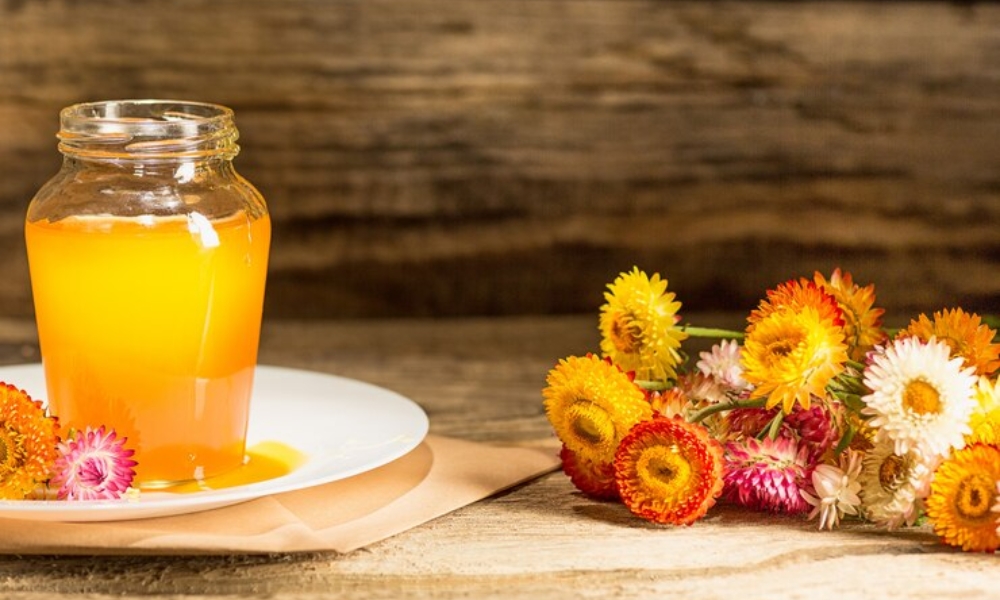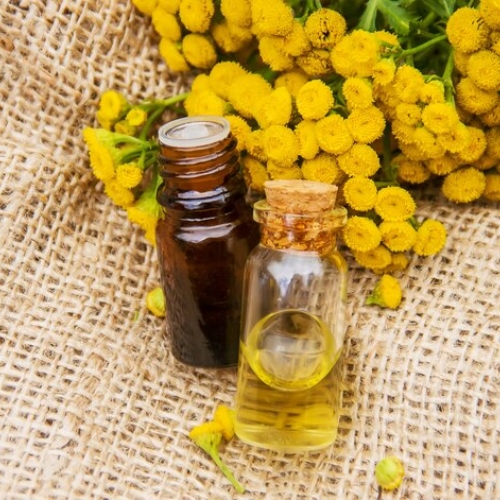
Chrysanthemum, a flowering plant with deep-rooted significance in traditional medicine, has emerged as a cornerstone in the herbal medicine market. Known for its rich chemical composition and therapeutic benefits, chrysanthemum is widely used in herbal formulations that address a range of health concerns. Its role in herbal medicine continues to expand, fueled by advancements in extraction techniques and a growing preference for natural remedies.
This article explores the importance of chrysanthemum in herbal medicine, its usage, benefits, impact and why it remains a preferred choice for natural health solutions?
Importance of Chrysanthemum in Herbal Medicine
Why Herbal Medicine Matters?
- Herbal medicine, grounded in centuries-old traditions, provides natural alternatives to synthetic drugs.
- It emphasizes holistic health by addressing the root causes of illnesses rather than just symptoms.
The Role of Chrysanthemum in Herbal Medicine
- Chrysanthemum has been a staple in traditional medicine, where it is revered for its cooling and detoxifying properties.
- Its broad-spectrum therapeutic applications make it an essential ingredient in herbal medicine.
Growing Global Demand
- The herbal medicine market is experiencing exponential growth as consumers seek safer and more sustainable health solutions.
- Chrysanthemum, with its versatile benefits, is at the forefront of this trend.
Chemical Composition of Chrysanthemum
1. Active Compounds
- Chrysanthemum is rich in bioactive compounds such as flavonoids, phenolic acids and essential oils.
- Key components include luteolin, chlorogenic acid and beta-carotene, all of which contribute to its medicinal properties.
2. Therapeutic Properties of Chrysanthemum
- Anti-inflammatory: Compounds in chrysanthemum help reduce inflammation, making it effective for arthritis and other inflammatory conditions.
- Antioxidant: The plant’s high levels of antioxidants combat free radicals, supporting overall health and immunity.
- Antimicrobial: Its natural antibacterial and antiviral properties may help fight infections.
Benefits of Chrysanthemum in Herbal Medicine
1. Chrysanthemum Supports Vision Health
- Chrysanthemum may improve eyesight and alleviate eye strain, thanks to its luteolin content.
- It is commonly used in herbal teas and remedies targeting vision-related issues.
2. Chrysanthemum Promotes Detoxification
- The plant’s cooling properties help remove toxins from the body, supporting liver health.
- Regular consumption of chrysanthemum tea may enhance the body's natural detoxification processes.
3. Chrysanthemum Alleviates Stress and Anxiety
- Chrysanthemum’s calming effects make it effective in reducing stress and promoting relaxation.
- It is often used in aromatherapy and herbal infusions for mental well-being.
4. Chrysanthemum Enhances Immune Function
- Its antioxidant and antimicrobial properties boost the immune system, helping the body resist infections.
- Chrysanthemum formulations may also support faster recovery from illnesses.
5. Chrysanthemum Improves Skin Health
- Topical applications of chrysanthemum may help treat skin conditions like acne and eczema.
- Its anti-inflammatory properties soothe irritation and promote a healthy complexion.
Applications of Chrysanthemum in Herbal Medicine
1. Chrysanthemum Promotes Herbal Teas and Infusions
- Chrysanthemum tea is a popular remedy for cooling the body, improving digestion and relieving headaches.
- It is often blended with other herbs for enhanced therapeutic effects.
2. Chrysanthemum Provides Dietary Supplements
- Capsules and powders made from chrysanthemum extracts are used as daily supplements to boost overall health.
- These formulations provide a convenient way to integrate chrysanthemum’s benefits into modern lifestyles.
3. Chrysanthemum Supports Topical Treatments
- Creams, balms and lotions infused with chrysanthemum are used for skin conditions and minor wounds.
- Its soothing properties make it an excellent ingredient in natural skincare products.
4. Chrysanthemum Helps in Respiratory Health Formulations
- Chrysanthemum is a key component in herbal syrups and lozenges for relieving coughs, colds and respiratory discomfort.
- It helps soothe the throat and reduce inflammation in the airways.
Impact of Chrysanthemum on the Herbal Medicine Market
1. Driving Innovation in Formulations
- Advances in extraction and reconstitution techniques have enabled the creation of potent chrysanthemum-based products.
- These innovations enhance the efficacy and appeal of herbal medicines.
2. Meeting Consumer Demand for Natural Remedies
- As awareness of synthetic drug side effects grows, consumers are turning to chrysanthemum for its natural and gentle healing properties.
- Its inclusion in diverse products caters to a broad spectrum of health needs.

3. Expanding Market Opportunities
- Chrysanthemum is not only used in traditional medicine but also finds applications in modern integrative therapies.
- Its adaptability makes it a valuable ingredient in global herbal medicine markets.
Why Choose Chrysanthemum in Herbal Medicine?
1. Holistic Healing
- Chrysanthemum addresses multiple aspects of health, from physical ailments to mental well-being.
- Its holistic approach aligns with the principles of herbal medicine, making it a trusted choice for practitioners.
2. Rich Cultural Heritage
- The plant’s historical significance in traditional medicine enhances its credibility and consumer trust.
- Chrysanthemum-based remedies are deeply rooted in cultural practices, lending them authenticity.
3. Scientific Backing
- Modern research continues to validate the medicinal properties of chrysanthemum, increasing its acceptance in both traditional and modern medicine.
- Its efficacy is supported by numerous studies, making it a scientifically sound choice.
Steps for Using Chrysanthemum in Herbal Medicine
1. Brewing Herbal Tea
- Steep dried chrysanthemum flowers in hot water for 5–7 minutes.
- Add honey or lemon to enhance flavour and therapeutic effects.
2. Preparing a Topical Solution
- Boil chrysanthemum flowers to extract their essence and use the liquid for skin compresses.
- Apply to irritated skin for soothing relief.
3. Combining with Other Herbs
- Mix chrysanthemum with peppermint for a refreshing and detoxifying herbal remedy.
- Use this blend as a natural alternative to over-the-counter solutions.
4. Aromatherapy Applications
- Chrysanthemum oil can be diffused in aromatherapy sessions to promote relaxation and stress relief.
- Add a few drops to a warm bath for a calming experience.
Conclusion
Chrysanthemum continues to shape the herbal medicine market with its rich chemical composition, diverse benefits and wide-ranging applications. From supporting immune health to promoting relaxation, its role in both traditional and modern formulations makes it an indispensable ingredient in natural healthcare. Advancements in extraction and formulation techniques are further unlocking its potential, ensuring its place in the evolving world of herbal medicine.
Recent Posts
- Balsam Tolu in Japan: Incorporating Exotic Aromatics in Perfume Culture
- Balsam Tolu in Mexico: Role in Traditional Remedies and Modern Perfumes
- Balsam Peru Absolute Across Europe: Perfume, Incense and Cosmetic Applications in Multiple Countries
- Emerging Markets for Resinoid Styrax: Country-Specific Demand and Opportunities
- How Are Pricing Fluctuations of Raw Materials Affecting Essential Oil Market Dynamics?
- What Are the Emerging Market Trends for Essential Oils in Europe’s Natural Cosmetics Industry?
- Why is Asia-Pacific Becoming the Fastest-Growing Market for Essential Oils?
Copyright @ 2025 | BMV Fragrances Private Limited | All Rights Reserved
Website Design & Digital Marketing by webmasterindia.
Website Updated On:


